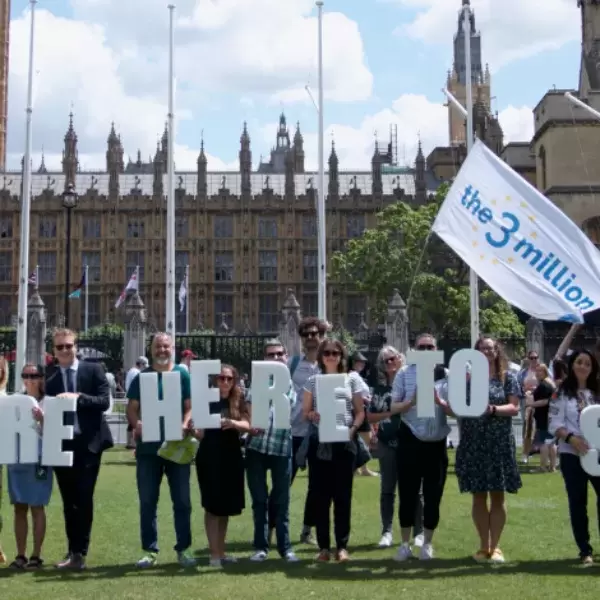Seven years after Brexit, EU citizens in the UK are HERE TO STAY - but still not settled
Seven years after the Brexit referendum, EU citizens now live in the UK with a new immigration status. The government's hostile environment is leading to people losing job opportunities, struggling to access the rental market and facing fraught travel.
Agnieszka is Polish and has lived in the UK for 16 years, most of her life. She was granted indefinite leave to remain, known as settled status. When she tried to change jobs, she had to prove her right to work to her new employer. She logged in to the government's digital-only View & Prove system and discovered someone else's name attached to her status, alongside an expiry date.
She said:
"It took the Home Office three months to solve this technical problem. I lost two job opportunities because of it. A mistake I was not responsible for led to me losing on income, on work experience, and so much time.
I felt stuck, empty inside and like other people are better than I am. I still feel really low when applying for jobs.”
Technical errors with the Home Office's system clearly pose significant privacy issues when people's personal data is being mixed up with that of others, through entangled status.
For digitally illiterate people, the Home Office has admitted View and Prove is not accessible to all. It is of specific concern that older people, people with certain disabilities, and the Roma community are excluded from being able to prove their status.
Immigration solicitor Denisa Gannon said:
"My clients are all digitally excluded. In the Roma community, many people do not have access to the internet or the digital skills needed to navigate the Home Office website, to prove their status. Although advisors or friends helped them regularise their immigration status, digital barriers mean people often can't access the job and rental markets, because they cannot prove their status."
the3million, an organisation representing EU citizens in the UK, put forward a policy proposal for an accessible, safe and affordable alternative to fix the digital only system. The government rejected the proposal which uses QR codes to give people a physical back-up of their immigration status, but opposition parties have pledged their support.
At an event in parliament this week, MPs Patrick Grady (SNP), Caroline Lucas (Green), Wendy Chamberlain (Lib Dem) and Hilary Benn (Labour) highlighted their commitment towards the proposed solution.
Kezia Tobin, Head of Policy and Advocacy at the3million, said:
“We’re delighted to have gained the support of cross-party MPs for our proposal to fix the digital-only status.
We believe the government’s implementation of the Withdrawal Agreement is wrong and authoritarian, as the Agreement clearly states people must have access to a digital document to prove their rights. View & Prove is not a digital document; it is a complex system compiling data in real time from multiple sources. It is flawed and it does not give individuals ownership of their immigration status.”
The UK has also been found to fail to comply with its post-Brexit deal on EU citizens’ rights by the Independent Monitoring Authority (IMA), the independent watchdog.
A recent inquiry found thousands of EU citizens were not issued with Certificates of Applications to prove their rights while waiting for decisions on their residency rights. In 1.7m cases, caseworkers have had to intervene manually to issue people Certificates of Application, leading to significant delays: from 14 days, to over a year.
Certificates of Application are required for EU citizens to prove their right to work, rent, access the NHS and open a bank account in the UK.



